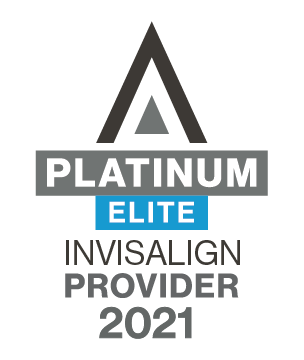To say Australians love their coffee is an understatement. The annual domestic coffee consumption in Australia is 1.91 kilograms of coffee per person. The yearly domestic coffee consumption in all of Australia is 1.87 million 60-kilogram bags. It’s safe to say we love our coffee, but just how harmful is the dark brew to our oral health?
The coffee industry is constantly bringing out new developments to entice more coffee consumption, and the latest trend to support this is the viral coffee trend called ‘Profee’ on TikTok. The drink, which combines a protein shake and cold brew coffee, is sweeping the world with gusto. It’s been praised for its ability to fuel the body with energy and help with adding more protein to our diet. However, unfortunately, most Australians are already consuming more than their recommended daily dose of protein and sugars.
The Recommended Dietary Allowance (RDA) for protein is a modest 0.8 grams of protein per kilogram of body weight. According to the World Health Organization (WHO), the recommended daily sugar intake is around six teaspoons or 24 grams of free sugar. If that sounds like a lot, know that the average Australian consumes 14 teaspoons of free sugar every day in food and drink – more than double the recommendation!
The concern about new trends like ‘Profee’ is that it may not be known just how much extra sugars are in the protein and how much these drinks can stain and harm teeth.
A pump of coffee syrup is another factor to consider, especially if the protein powder is already sweetened.
If you think about how much coffee can stain your clothes if you spill a few drops, think about how much it can stain your teeth. Coffee contains ingredients called tannins, which are a type of polyphenol that breaks down in the water. These tannins stick to the teeth, and the compounds cause a yellow colour to mark the teeth.
What causes yellow teeth?
Many factors can cause teeth to yellow or stain.
Some of these are:
- Drinks, such as red wine, coffee, or tea
- A diet high in sugar and simple carbohydrates
- Smoking or chewing tobacco
- Side effects of certain medications and mouthwashes
- Age, as older adults are more likely to have yellow teeth
- Genetics
- Mouth trauma
- Excessive fluoride consumption
- Poor dental care and oral hygiene
- Chronic dry mouth or lack of saliva
Can coffee cause more harm than stains?
- Besides stains, coffee can also cause bacteria to grow in your mouth, leading to tooth and enamel erosion. This can cause your teeth to become thin and brittle.
- Coffee can also cause bad breath or halitosis because it sticks to the tongue.
- Coffee has a dehydrating effect on the mouth, which reduces saliva flow and allows foul-smelling bacteria to not only grow but linger.
- Coffee can be a diuretic. While coffee can be a diuretic and can increase urination frequency, it’s not going to dehydrate you unless you drink a large amount of coffee in a day – over 5 cups. Still, drinking water can help with hydration and wash away odours from the mouth.
How to prevent coffee stains
We know how difficult it is to give up your favourite cup of morning coffee. If it’s not an option to give up coffee altogether, then you can prevent stains by cutting back on consumption and drinking water straight after.
Here are some other tips:
- Perhaps opt for a single cup of coffee in the mornings, followed by water and green tea later in the day.
- Avoid syrups and excess sugar, as this only speeds up the growth of bacteria. Drink your coffee in one sitting instead of small sips throughout the day to prevent bacteria build-up.
- If you prefer coffee in a cold brew form or iced coffee, try and drink with a straw to reduce stains on your teeth.
- Coffee is also highly acidic, so if you can brush your teeth immediately after eating or drinking, it’s a good idea.
- Attend the dentist for regular active maintenance appointments as they can clean and polish your teeth to remove the staining.
Teeth whitening options
While there are several teeth whitening kinds of toothpaste on the market and DIY tooth whitening kits, going to the dentist for teeth whitening is the most proven method for removing stains.
There are two options to consider for dentist teeth whitening.
Instant in-chair whitening
Advanced Power in-chair whitening system is a leading professional option. A complimentary consultation is offered to assess suitability. If approved, photos and impressions are taken, and personalised trays made. Soft tissues are covered before a strong whitening solution is applied to the teeth. The Zoom! Advanced Power lamp is used in four cycles of 15 minutes each. A complimentary mini home whitening kit is included. Our dentists and hygienists will explain how to maintain your new smile using the personalised home whitening trays. The result will be reviewed two weeks later.
Home teeth whitening
NiteWhite home whitening kit is an excellent option for those who would like to brighten their teeth at home gradually. Custom-made trays which look like thin, transparent mouthguards are fabricated and fitted. The whitening gel is then measured into the trays and placed over the teeth overnight or two to four hours a day for about two weeks. The progress will be reviewed two to three weeks after the home treatment is completed. We will also explain how to maintain your new whiter, brighter smile.
Withers Dental offers a complimentary mini Zoom! NiteWhite Kit at the end of all Invisalign and braces services.
If you are considering tooth whitening, please contact us for a complimentary consultation with an oral health therapist.

